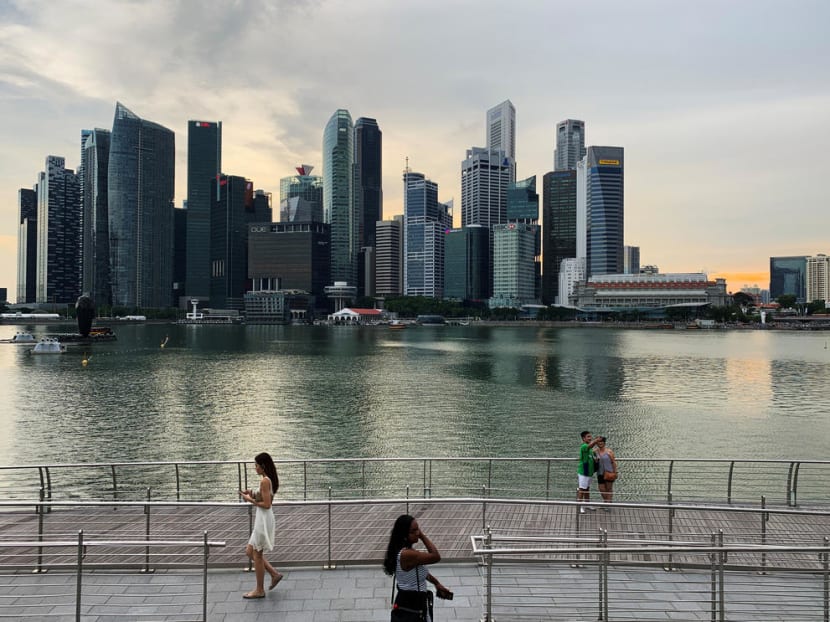Resilience Budget: S$1.9 billion to build social and economic resilience, including continued R&D investments
SINGAPORE — More than a third of the latest stimulus package to help Singapore through the Covid-19 crisis is about supporting the workforce and households, but building a strong society is not just about giving more social support, Deputy Prime Minister Heng Swee Keat said. It is also about fostering a culture of social responsibility.

Deputy Prime Minister Heng Swee Keat said that it might be costly for employers and households to follow safe distancing measures and the Government would offer help, where appropriate, to cushion the impact.
SINGAPORE — More than a third of the latest stimulus package to help Singapore through the Covid-19 crisis is about supporting the workforce and households, but building a strong society is not just about giving more social support, Deputy Prime Minister Heng Swee Keat said. It is also about fostering a culture of social responsibility.
Pledging that the Government will do what it can to encourage this, Mr Heng said in Parliament on Thursday (March 26) that everyone must play their part to comply with a wider range of safe-distancing measures that the country may have to roll out to halt coronavirus transmissions.
He acknowledged that it might be costly for employers and households to follow these measures and said that the Government would offer help, where appropriate, to cushion the impact and support responsible behaviour.
The Government will put aside S$1.9 billion to build resilience in Singapore’s economy and society.
FOSTERING ECONOMIC RESILIENCE
Aside from building social and psychological resilience, Mr Heng, who is also Finance Minister, said that the country would build economic resilience at all levels.
It will continue to invest in long-term capabilities including in research and development (R&D).
Covid-19 had reinforced the importance of R&D investments to prepare for critical challenges, such as in managing pandemics and ensuring food security, he noted.
For example, Singapore was among the first countries to successfully develop Covid-19 test kits. One developed by the Agency for Science, Technology and Research and Tan Tock Seng Hospital is now used in nine hospitals here, and has been sent to countries such as China, Myanmar and the Philippines.
“We will continue to make steady investments in R&D,” he said.
The public health crisis has also underlined the importance of having resilient supplies of food and other essentials.
Not only is Singapore building its national stockpile of health supplies, including masks and hand sanitiser, it also has a robust strategy to ensure an adequate supply of safe food, Mr Heng said.
Firms, too, have a part to play. Businesses should use this downtime to restructure, digitalise and transform by tapping government grants and schemes.
The Government will enhance the SMEs Go Digital Programme, which helps small- and medium-sized enterprises use digital technologies and build stronger digital capabilities.
It will provide support for more digital solutions, including basic remote working tools and more advanced systems.
The authorities will also raise support for the Enterprise Development Grant, which helps Singapore companies grow and transform.
From April to December, government support will go up from 70 to 80 per cent. For enterprises hardest hit by Covid-19, it could rise to 90 per cent and this will be assessed on a case-by-case basis.
Government support under the Productivity Solutions Grant, which funds the use of off-the-shelf productivity solutions and equipment approved by the Government, will also go up from 70 to 80 per cent from April to December.
The Government will also support workers in efforts to upgrade their skills.
From April, employers in the land transport and the arts and culture sectors will receive “absentee payroll” rates, covering 90 per cent of hourly basic salaries (capped at S$10 an hour) of workers who undergo certifiable skills training during working hours. They will also receive 90 per cent subsidies for their workers’ course fees.
Previously, only the aviation, tourism, food services and retail industries benefited from these schemes until June.
From May, the absentee payroll grant will be extended to all employers. Mr Heng said that this will provide firms with “additional cash flow relief” when their workers go for training. These changes will cover eligible courses that start before Jan 1 next year.
In other support measures, Singaporeans aged 25 and older will be able to use a one-off S$500 SkillsFuture Credit top-up for selected courses from April 1, in advance of the previously announced October start.
Singaporeans may opt for more than 8,000 courses by institutes of higher learning, such as universities and polytechnics, and training provider NTUC LearningHub. Government agency SkillsFuture Singapore said that these include courses in data analytics, digital literacy and communication skills.
Mr Heng said: “I hope this will help many more workers, jobseekers and self-employed persons make use of the downtime to learn, develop new skills and stay employable.”
For more on the Resilience Budget, visit tdy.sg/resiliencebudget











